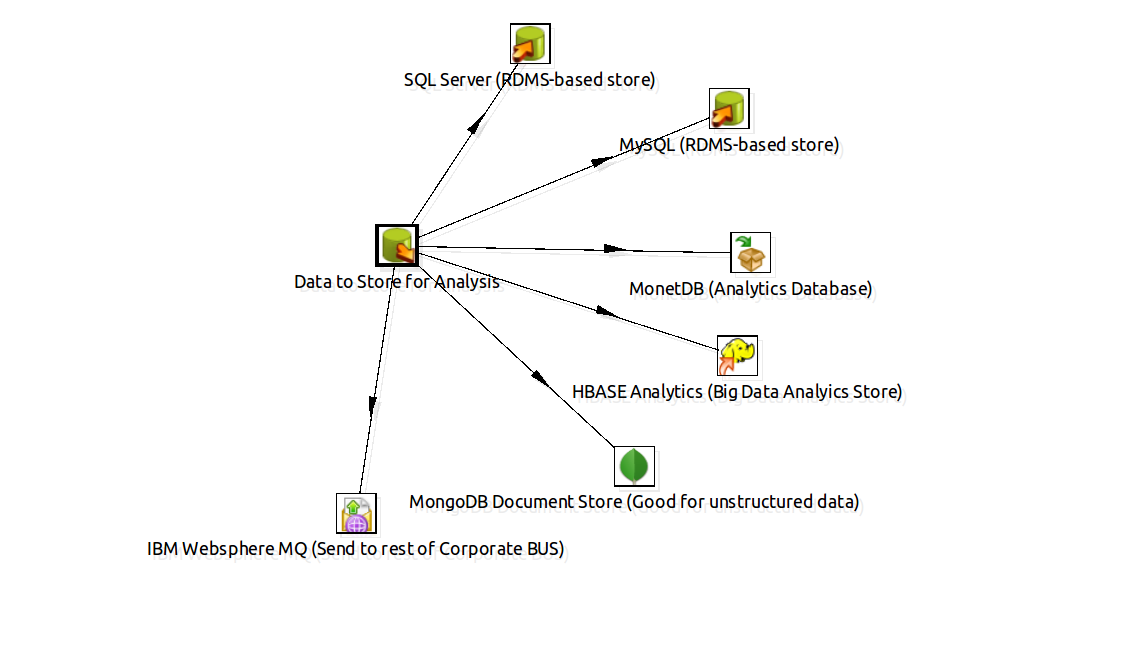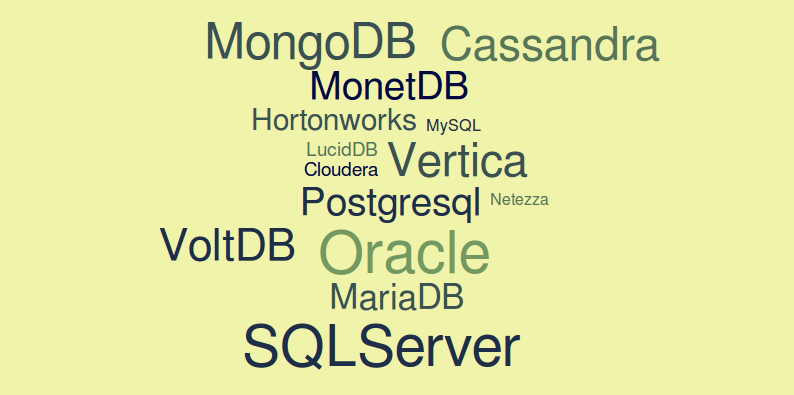
This is particularly true of BI where in many cases the data store is locked-in by the BI vendor (Oracle, IBM, SISense, CliqTech and others are known to use this play book).
If you use the right tools and can move your data around easily, this all becomes a mute point. When selecting BI and selecting data stores, we recommend you think about the Data Integration and migration possibilities. Are you painting yourself into another corner?
What is RAIDS?
You’ve probably heard of RAID, a well known technique used in servers to provide safety in the event of a disk crash (as well as speed). Well RAIDS is the equivalent for the Analytics / Big Data space.
At Bizcubed, we believe having tools that make it easy to write out to multiple data stores for different reasons (ie Redundant Arrays of Inexpensive Data Stores) makes it easier to future-proof and enable your organisation.
There is no perfect data store solution for every problem. You need flexibility and speed to adjust to the needs of your business as quickly and economically as possible.
So here are our 5 reasons to consider a RAIDS program. Enjoy (and Merry Xmas btw).
1. Because this year’s ‘wired’ is next years ‘tired’
We’ve all heard it, hype about a new method of storing data that will ‘change the game’. This goes as far back as Ancient Roman Chariot wheel design – of course it deprecates a lot faster now!
In no particular order to avoid upsetting vendors, here are some we’ve heard hyped and dissed in the last 3 years:
The interesting thing is they all have viability and usefulness in their own places, but should you be ‘wedded’ to them for Analytics or anything else for that matter?
2. Because you know your data stores will not win all benchmarks all of the time.
Way back in the day, Oracle and DB2 used to duke it out in terms of performance. We still see modern versions of this happening all the time with the new Big Data providers releasing stats on their performance improvements frequently. Some IT people in particular are still interested in performance as they are always pushing operational requirements and boundaries.
What we’ve found is that flexibility in where you store the data means that you don’t need to pick your data store tech on performance alone.
For example:
If you need to do a lot of line / detail reporting. Most RDBMS are capable these days of doing this fast, take your pick: Postgresql, MariaDB, Oracle, SQLServer, DB2. There are a bunch that are open source, open source (supported) and proprietary. It’s up to you.
If you need fast answers at total levels (lots of them). Ie fast aggregation. Again, lots of choice, MonetDB, Vertica, Netezza are some, there are lots of choices.
If you need to store data whose structure is a little indeterminant at times (log data, call data, Internet Of Things data, social data, server data) there are NOSQL solutions to this puzzle. You can try MongoDB, LucidDB, even Hadoop if the data is seriously large.
There are a bunch of other options that perform different ways, sometimes to improve performance without breaking the bank, it’s best to pop the data out to several data stores and use the right one for the right type of analysis. That’s what we prefer. Of course the tools to make that easy are good to have too unless you’ve a lot of money for specialist developers (eg, python teams, map-reduce teams, java teams , .net teams etc).
3. Because future-proofing is part of your IT DNA right?
All businesses that use a lot of IT learn that future-proofing is essential. Some take the view that you can trust your vendor to keep you safe in bad times and good. This is not always true as Compaq, Wang, Prime, Google and many others have shown, things can be shut down, deprecated, or the company can just go to the wall. If anything, the speed of rise and fall is accelerating.
Future proofing is IT’s responsibility, not the software vendors, making sure you have a plan B, C and possibly D for your data stores will help risk proof your business from future shock.
4. Because you need Big Data but not at the expense of your other data
Big data holds a huge amount of promise most of which has only just being discovered.
Pentaho have identified some of the use-cases in their big data blue prints where big data is monetizing value for business.
These include:
- Optimising your Data Warehouse to reduce costs.
- Monetising your Data by bringing it all together easily.
- Streamlined Data Refinery to process and analyse the huge volumes of data efficiently
- Customer 360-Degree View to bring together traditional data with new big data sources.
However you shouldn’t throw the baby out with the bath water. Big Data is part of the solution and you need to allow easily for that without breaking the bank supporting multiple integration teams and technologies.
What if you could spread the risk across a couple of different data sources including Big Data? Surely that’s a good way to take a punt but not lose your shirt?
5. Because flexibility makes for a great talking point with your Vendor
Pricing negotiations are something to behold.
In some circumstances, Database vendors who have clients locked-in to their architecture and product portfolio have the upper hand in negotiations (they tend to use different terms to describe this, but since this is a polite blog, we won’t share them).
It’s always great to know you have a plan B, if your current vendor strategy turns sour, you can start off-loading or trialing new technologies fast.
If you make your vendor aware of this, the pricing negotiations will be much more civilised. Believe me, I’ve been on the wrong side of these before as a CIO. It hurts to have to accept unreasonable demands, but the alternatives can hurt a lot more.
RAIDS
RAIDS can give your organisation a higher level of comfort and speed as you traverse an increasingly dynamic future. This future of course, comes with risks and rewards. At Bizcubed, we believe that having the right tools behind you will help you take advantage of these new opportunities without having to bet the sheep station.
With a toolset that is able to keep these integrations in line easily and provide more and more data sources each year to tap into as the world discovers them, Bizcubed are able to help you implement strategies of redundancy (perhaps not quite as extreme as the Pentaho Data Integration example above but who knows).
If you’re interested in learning a little more about how this all works, we’re happy to have a chat, drop us your contact details and some notes on your situation and we’ll be in touch.
[gravityform id=”35″ name=”Let’s talk about data sources” title=”false” description=”false”]

Zachary Zeus
Zachary Zeus is the Founder of BizCubed. He has more than 20 years' engineering experience and a solid background in providing large financial services with data capability. He maintains a passion for providing engineering solutions to real world problems, lending his considerable experience to enabling people to make better data driven decisions.


